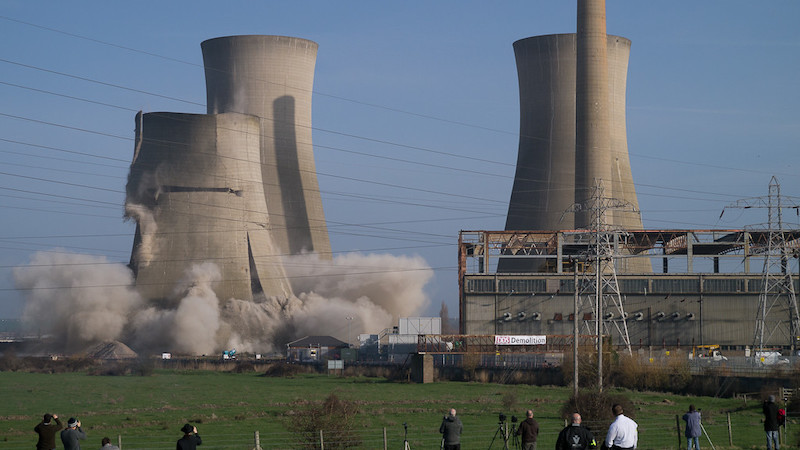Among other highly mediatised events and announcements at last week’s UN climate action summit, one notable message was delivered on coal, still the most polluting of all fossil fuels.
The powering past coal alliance (PPCA) announced an expansion of its membership, now also including countries such as Germany and Slovakia.
The PPCA, established in 2017, is a multi-stakeholder partnership, co-chaired by the UK and Canada, that brings together state and sub-state governments, businesses and other organisations in order to establish a global coal phase-out by 2050 at the latest. It now counts 91 members, all vowing to curtail coal-fired power generation and end the construction of new coal plants by 2020.
The PPCA, as well as similar initiatives, offers a new response to long-standing issues of international climate policy and politics. It challenges a traditionally dominant interest-based approach, inspired by a logic of consequence, through economic incentives, such as carbon pricing or emissions-trading schemes, to mitigate the effects of climate change. Instead, following a logic of appropriateness, the PPCA promotes an ethics-based approach which suggests that there is a moral obligation to act on climate change. In that sense, the PPCA formulates an international anti-fossil fuel norm to phase out coal-fired power generation.
The UN asked for climate plans. Major economies failed to answer
The PPCA echoes initiatives from other fields of international relations, most notably in human security, where a logic of appropriateness and norm-building have played an important role in establishing international agreements and bans on land mines, cluster munitions, or nuclear weapons.
Similarly, if the PPCA were to develop into an international treaty covering the phase-out of coal for electricity generation, it can be part of an overarching international coal “non-proliferation agreement”, or “coal convention” – analogous to the Chemical and Biological Weapons Conventions – that bans the extraction, transport and consumption of coal (and even other fossil fuels) all-together.
There are lessons that can be learned from the PPCA. In a recent article for the journal Energy Research and Social Science, we explore the origins and development of the alliance and examine why countries actually join the PPCA. After all, until Germany’s admission last week, the alliance mostly included countries that use little or no coal for electricity generation. This is of course problematic since the establishment of a meaningful global anti-coal regime requires the participation of key stakeholders and actors.
We found that even though the PPCA formulates an international anti-fossil fuel norm, countries do not necessarily sign up to it based on purely moral or ethical grounds. Our findings point to the interplay of both rational interest-based and identity-based considerations in determining membership of this anti-coal regime.
‘We will not forgive you’: Greta Thunberg’s speech to leaders at UN – video
The momentum and effects of the PPCA are, however, mostly informed by the logic of consequence. Countries that have no coal in their electricity mix and that have adopted a phase-out plan are most likely to join the PPCA. More specifically, countries join the PPCA if they have a phase-out plan and are a climate leader, or they have a phase-out plan and do not have a strong coal industry.
In other words, even if the behaviour of states is mostly constituted by their interests, by which they evaluate expected outcomes, the norms and convictions embedded in their identities are also important to understand decision-making on coal phase-outs and climate action.
What is next? Rather than expanding its membership with countries that consume little or no coal, the PPCA could additionally focus its efforts of technical diplomacy through its network of policy experts and energy specialists. Exchanging best practices and policy experiences is important to diffuse technical knowledge on domestic phase-outs, both with members and outsiders.
This is a reminder that CHN is a small independent news site, dedicated to bringing you news from all over the world. That’s expensive and we need our readers to help. Here’s how you can, even for a few dollars a month.
Another priority should be to maintain political momentum at high-level political events, such as the climate action summit. As it stands now, the PPCA can also function as an external commitment device that creates a feedback, or lock-in, effect for newly elected governments to remain committed to a domestic coal phase-out.
But just like a nuclear non-proliferation treaty cannot work without the presence of nuclear powers, or a chemical weapons convention is not viable without having those countries on board that produce them, the PPCA needs notable coal consumers among its members.
With membership of a country like Germany, still the largest coal consumer in Europe and an international climate leader, the PPCA shows how a normative approach could bolster climate action in the future. This “normative turn” could herald a new era for climate governance, based on an equitable consideration of both morality and interests.
Mathieu Blondeel is doctoral researcher and Thijs Van de Graaf is an assistant professor at the Ghent Institute for International Studies, Belgium.
